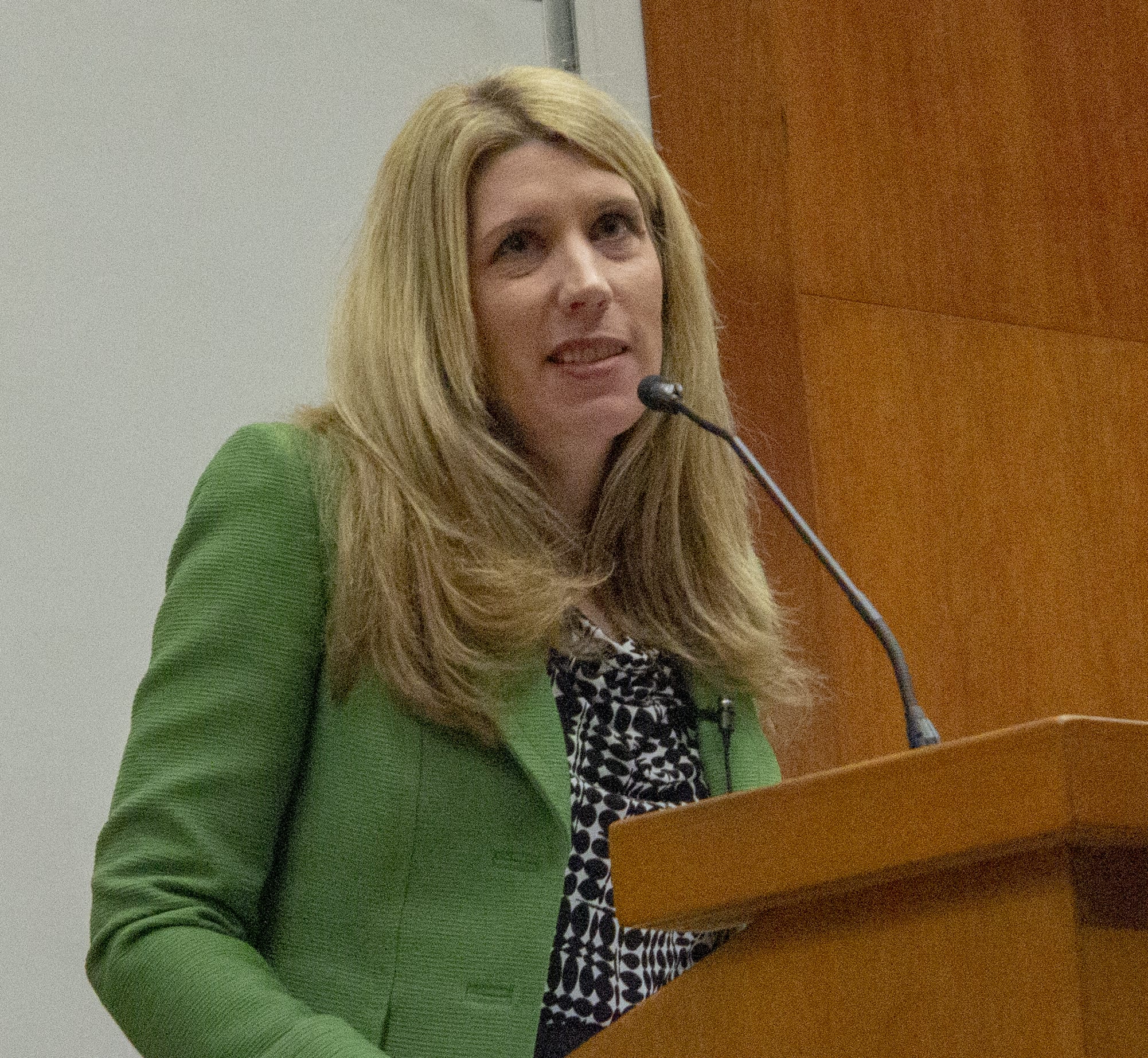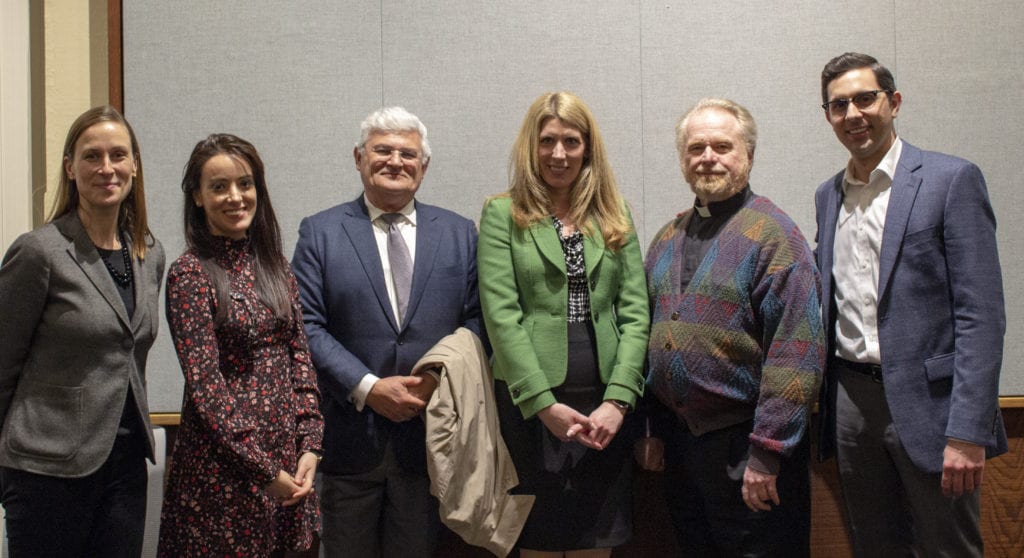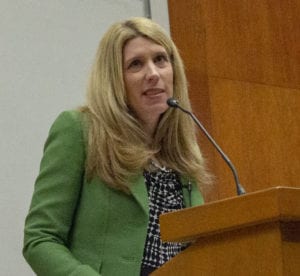

In 2013, Dr. Jennifer Haselberger made national news when she publicly resigned as the top canon lawyer for the Archdiocese of Saint Paul and Minneapolis and exposed their mishandling of sexual abuse. On February 25, 2019, Dr. Haselberger gave the 2019 Robbins Collection Lecture on Canon Law, “How the Church Can Overcome the Sexual Abuse Crisis.” Dr. Haselberger’s visit to Berkeley came directly on the heels of a meeting at the Vatican to address the sexual abuse crisis. While victims of sexual abuse and the Catholic community had hopes that Pope Francis would finally lay out concrete actions the Church could take, many were left disappointed.
Dr. Haselberger began the lecture by addressing the shortcomings of the meeting at the Vatican, detailing how these shortcomings are a product of the holes in Canon law that have made the sexual abuse crisis possible. Only in 2001 did the Catholic Church promulgate several new laws related to sexual abuse, indicating the leadership’s knowledge of the severity of the problem. Just one year later the coverage of the crisis by the Boston Globe led to widespread media scrutiny in the United States. The second half of Dr. Haselberger’s lecture outlined simple reforms in canon law the Church could adopt.

Dr. Haselberger had four suggestions to stop, if not significantly reduce, the number of new sexual abuse cases within the Church. The first was to involve lay people in authentic participation in the governance of the Church. Lay people are already doing this kind of work in their parishes—for example bookkeeping or accounting.. Allowing authentic lay participation in governance would provide a broad public oversight of priests. Another recommendation was to raise the age of ordination. For the last sixty years the age of ordination has been 25 years old, meaning priests typically do not experience life outside of the Church. If the Church raised the age of ordination to 30 or 35, priests would enter seminary and became ordained with a conviction and dedication that comes after a decade of living a life outside of the confines of the Church. Her last two recommendations were to rethink the permanence of the power of sacrament, and being cautious and judicious with mercy and forgiveness. Dr. Haselberger argued that the Church is based on the idea of forgiveness, and that too many priests assume that forgiveness will follow exposure of their abuse. Instead, perpetrators of sexual abuse need to seek out forgiveness and mercy, and show contrition.
Dr. Haselberger’s lecture highlights the continued importance of the study of canon law today. It is only through an understanding of the structure and laws that guide the Catholic Church that we can begin to find solutions to the ongoing sexual abuse crisis.
The 2019 Robbins Collection Lecture on Canon Law was sponsored by the Robbins Collection in collaboration with Catholics at Berkeley Law, a student led organization. The annual lecture in canon law is just one of the many ways the Robbins Collection seeks to promote comparative research and study in the fields of religious and civil law and highlight solutions to contemporary legal issues.